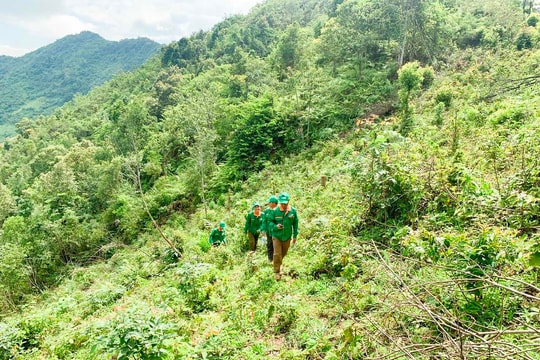Part 3: The transition from 'online government'
With the geographical characteristics of mountainous areas with difficult roads and poor and weak infrastructure, the application of information technology and digital transformation in management and operation has created important changes, changing the leadership and management mindset, bringing the Party's resolutions into life for both cadres and people. In particular, digital technology also helps people access economic trends, opening up many new career opportunities, gradually rising out of poverty.
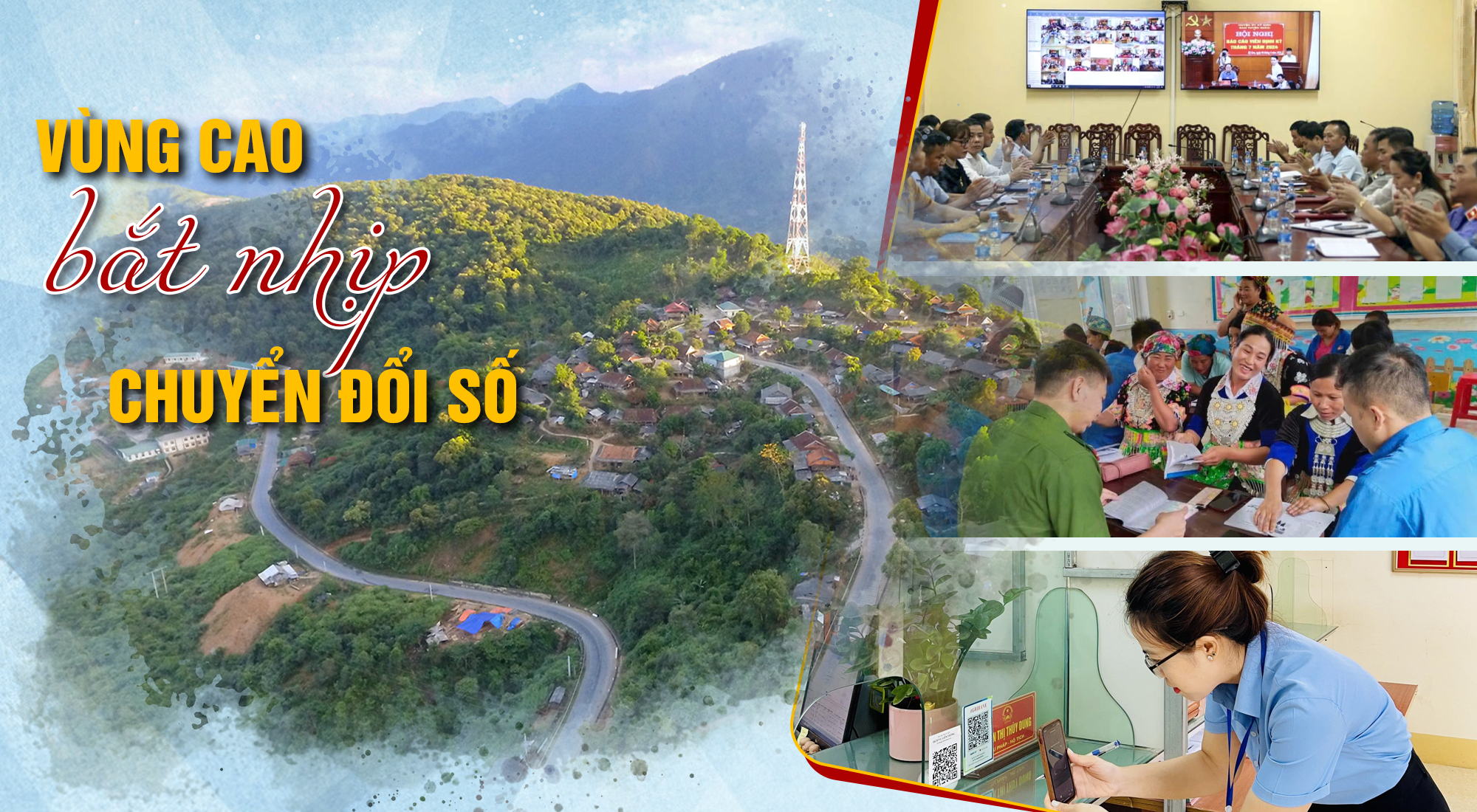

Thanh Phuc - Hoai Thu • September 25, 2024
With the geographical characteristics of mountainous areas with difficult roads and poor and weak infrastructure, the application of information technology and digital transformation in management and operation has created important changes, changing the leadership and management mindset, bringing the Party's resolutions into life for both cadres and people. In particular, digital technology also helps people access economic trends, opening up many new career opportunities, gradually rising out of poverty.

On July 9, 2024, it was already dark, although he had left the meeting at the People's Committee of Huoi Tu commune (Ky Son) for quite a while, but Pha Bun village chief - Mr. Ho Tong Lau was still filled with joy, saying, "Today is really fun, being able to attend a meeting directly with Central officials. This meeting was attended by many senior leaders of the Politburo and central ministries and branches. Being a cadre in a remote village like Pha Bun is really satisfying." Nearly 50 years old, with nearly 30 years of participating in village work, growing up from the Youth Union movement, both working and producing and building grassroots movements with the village, old Ho Tong Lau gradually became a prestigious person, was elected as Party Cell Secretary, then Pha Bun village chief for decades. However, as old man Ho Tong Lau shared, about ten years ago, every time there was an invitation for village and hamlet officials to attend a meeting in Muong Xen town, he would pack up and leave the previous afternoon to be in time for the meeting the next morning.
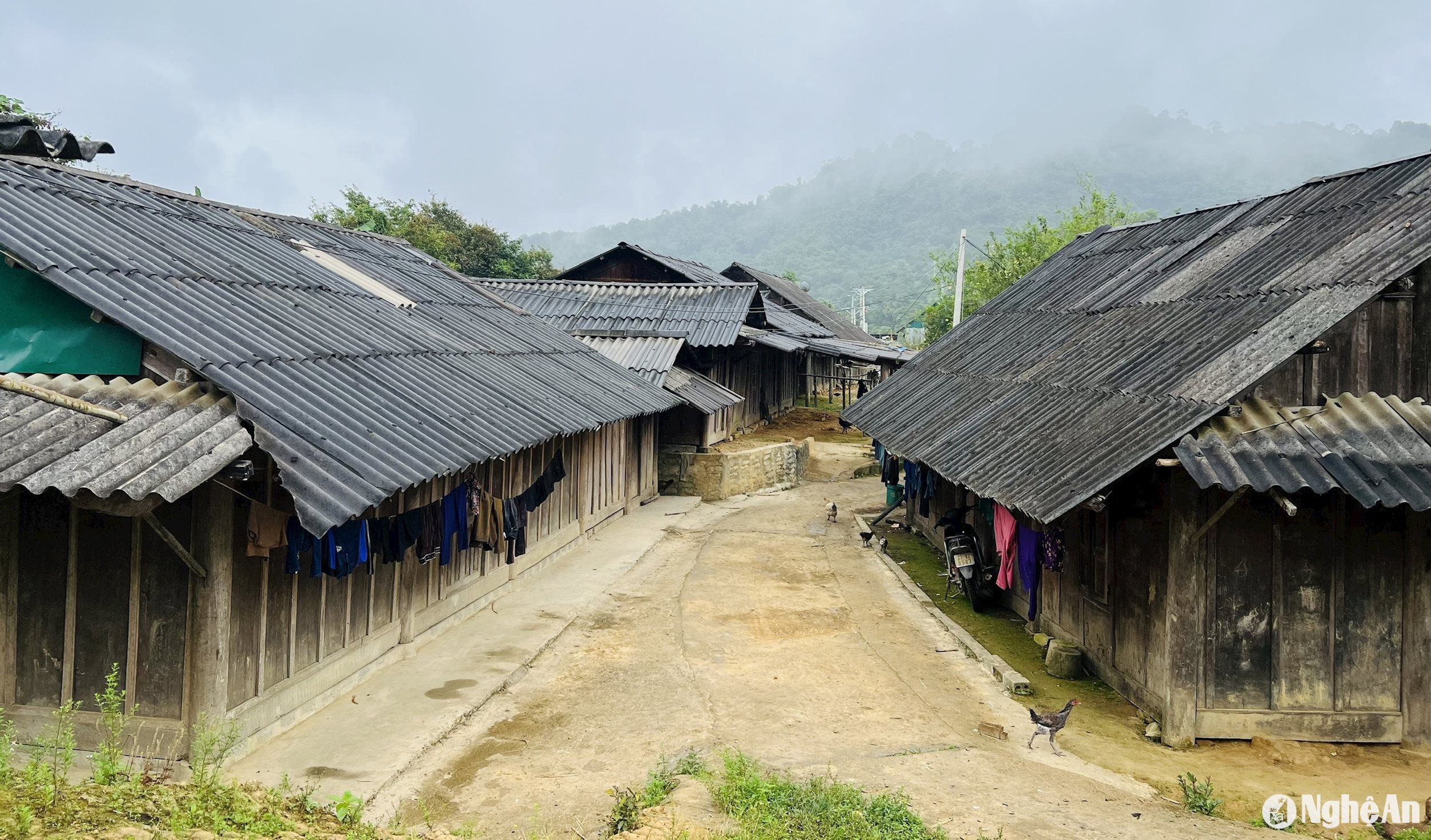
“Back then, the roads were too difficult to travel, in the rainy season motorbikes were slippery, going uphill was easier than going downhill, we had to tie ropes around the wheels to move. In the evening, village cadres from far away places like us had to go to town first, rent a place to sleep temporarily to attend meetings the next day. Each meeting was only one morning but the travel time took one day and one night. Back then, even in my dreams, I could not have dreamed of today's reality, I could not have imagined that there would come a time when village cadres in this remote mountainous area could sit together and attend a meeting with Party and State leaders in Hanoi. Information technology has changed my thinking so much” - old man Ho Tong Lau shared.
It is unthinkable that there will come a time when village cadres in this remote mountainous area can sit together in a meeting with Party and State leaders in Hanoi via a digital platform. Information technology has changed so much."
Old Ho Tong Lau, Chief of Pha Bun village, Huoi Tu commune (Ky Son)
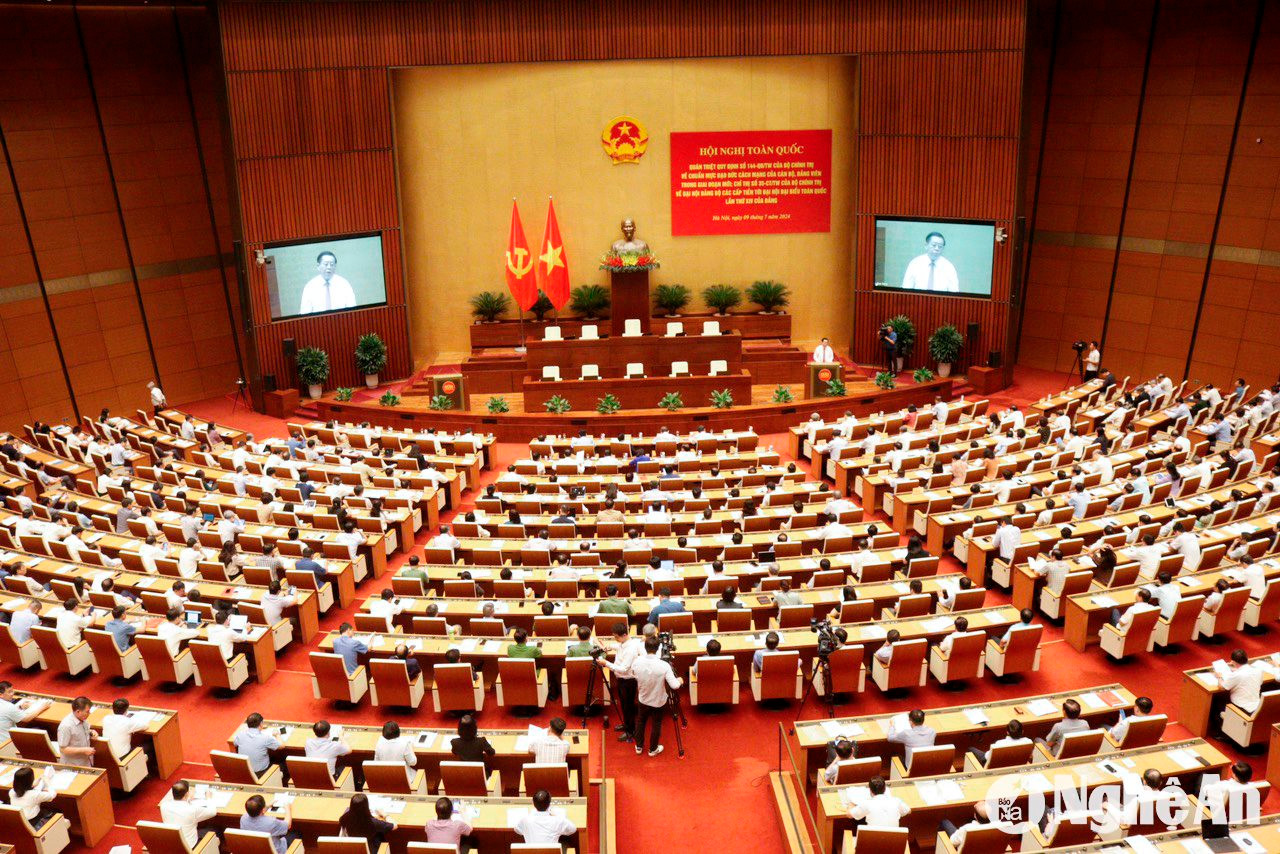
The meeting that old man Ho Tong Lau mentioned was the national online conference to thoroughly grasp Regulation No. 144-QD/TW on revolutionary ethical standards of cadres and party members in the new period; Directive No. 35-CT/TW on party congresses at all levels towards the 14th National Congress of the Party. The conference was broadcast live from Dien Hong Hall, National Assembly House and combined online to 15,644 points of central agencies, provincial and municipal party committees directly under the Central Government and commune-level points of contact, with more than 1.28 million party members nationwide attending. In Nghe An, from the provincial-level point of contact, through the connection of the online meeting system, 37 district-level points of contact and 554 commune-level points of contact attended the meeting.
“At the commune-level bridge point, in addition to key officials and the commune party executive committee, we invited the team of secretaries, village chiefs, heads of associations and mass organizations of villages and hamlets to attend the meeting. Not only this meeting, but for the past 2 years, thanks to the district's online meeting system, grassroots officials have benefited a lot when receiving and implementing directives and resolutions is faster, and travel time is reduced. Especially in mountainous areas like Ky Son, online meetings are truly a breakthrough to help improve the effectiveness of leadership and management at the grassroots level,” said Mr. Denh Ba Long - Secretary of the Party Committee of Huoi Tu commune (Ky Son).
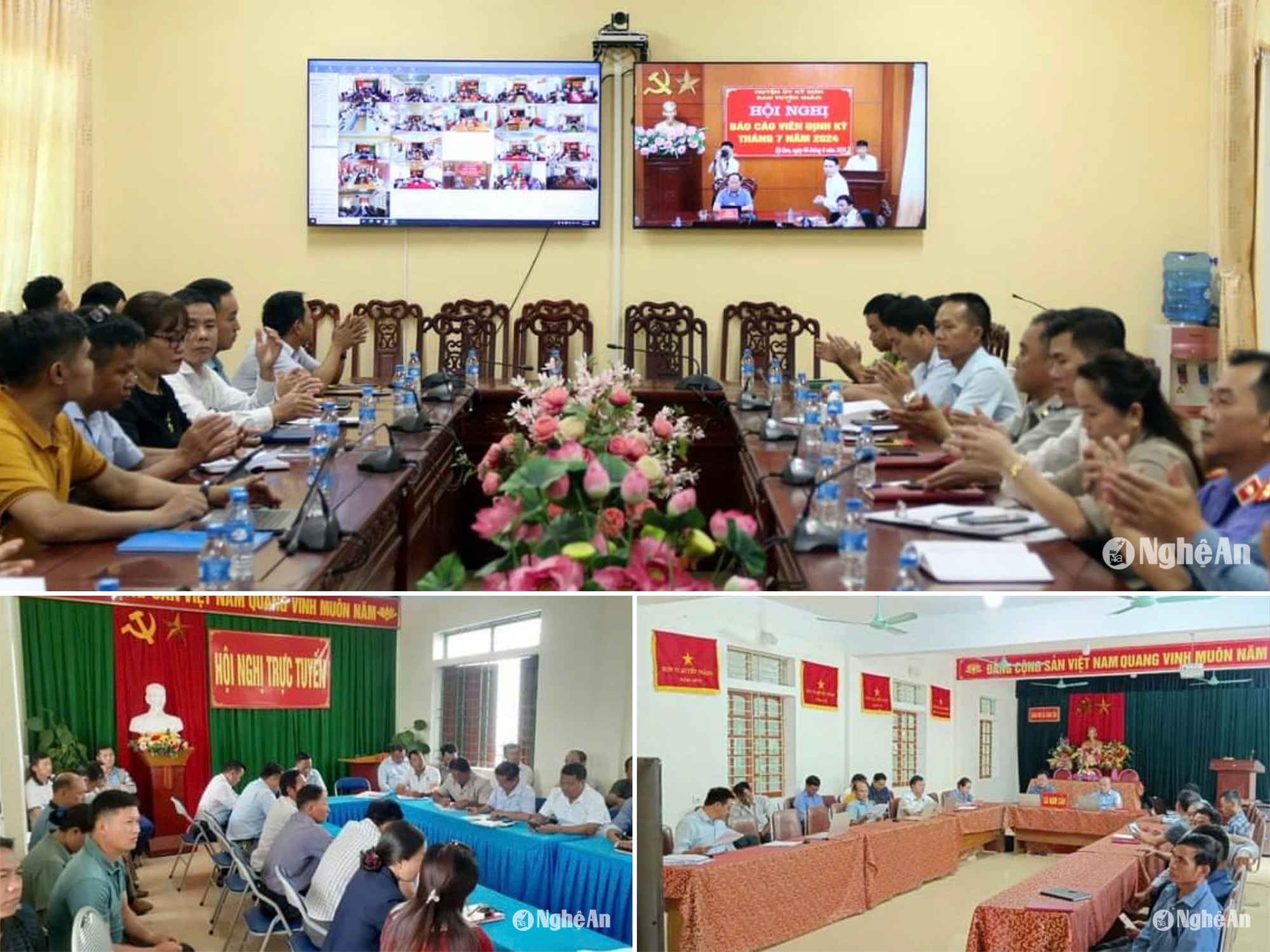
Sharing similarly, in Khai Son commune, Anh Son district, Mr. Vo Ngoc Tiep, a civil servant at the Commune People's Committee Office, said that since the online meeting system was established, not only commune and district-level cadres and party members, but also village and hamlet cadres can participate in meetings organized by the Central Government. This was unprecedented and can only happen in the digital age. Khai Son commune has 7 hamlets, of which 1 hamlet has Catholics and some hamlets are quite far from the commune center, such as hamlet 9a (5km from the Commune People's Committee). “In Khai Son commune, most of the village and hamlet cadres are quite old, so some of them have difficulty moving around and their health is limited. However, thanks to the online meeting system, this shortcoming has been overcome, helping them to complete their tasks well, absorb fully and effectively, and avoid "copying" the leadership and management spirit as well as the mechanisms and policies of the Party and State when attending meetings in person. In 2023 alone, together with the People's Committee of Anh Son district, Khai Son commune has deployed two connections with village and hamlet cadres to attend nearly 20 online meetings" - Mr. Vo Ngoc Tiep said. In 7 hamlets of Khai Son commune, every hamlet has a Digital Technology Team to help people answer questions, install and use digital technology applications to serve their lives, meetings, communication, and economic business.
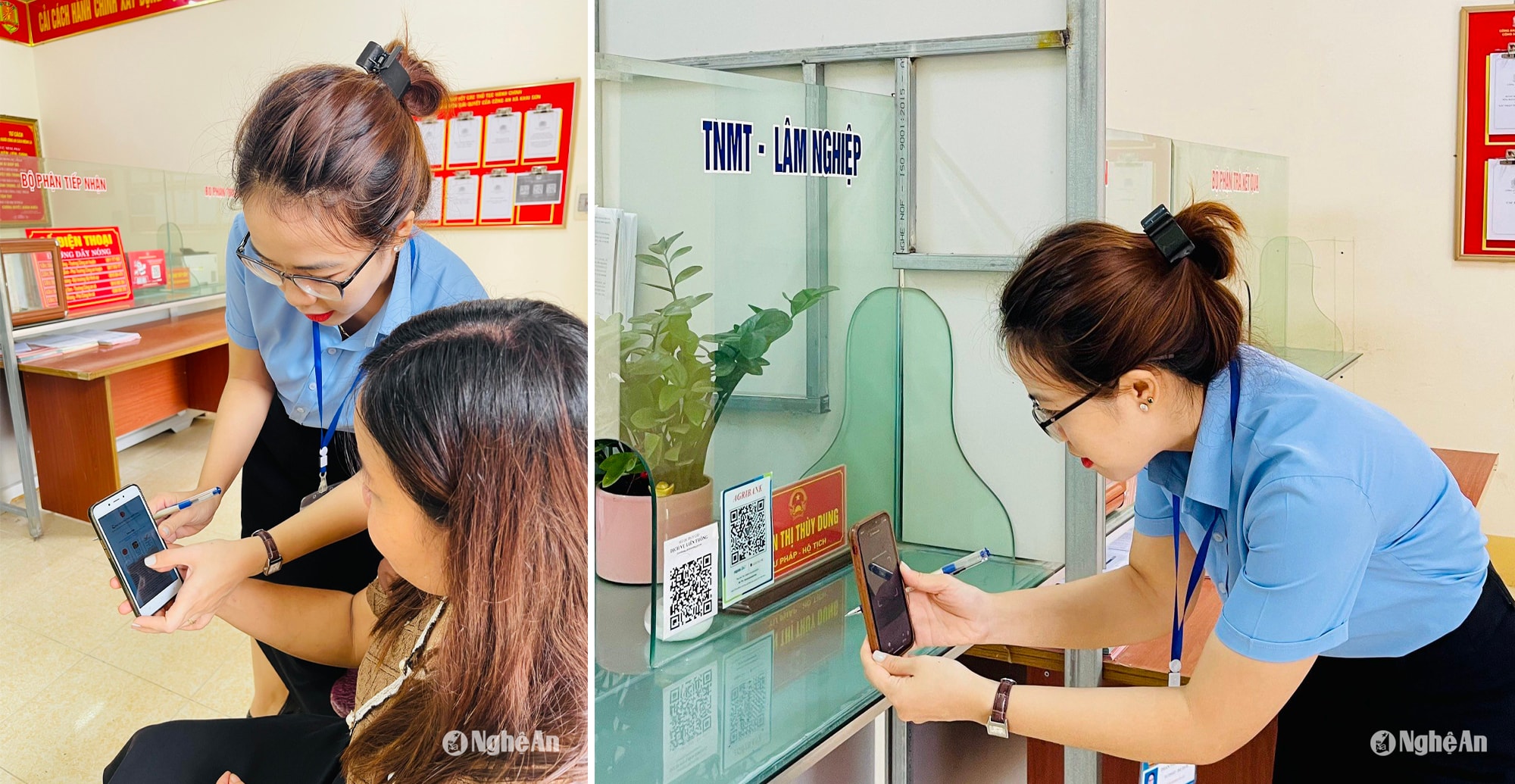
In the first 6 months of 2024, the whole province has conducted online video conferences with 4 bridges, connecting the Provincial Party Committee, People's Council, Provincial People's Committee with district, town Party Committees, People's Committees of districts, towns, cities and a number of departments, branches and sectors. From December 10, 2023 to May 31, 2024, the online television system served 41 intra-provincial meetings; of which the Provincial People's Committee held 08 meetings and the Provincial Party Committee held 04 meetings.

Thanh Son Commune, Anh Son District is a remote area where 100% of the population is Thai ethnic people. With more than 900 households and a population of more than 3,600 people, the lives of Thanh Son people have now improved thanks to economic and cultural changes. For Ms. Dang Thi Tho, a civil servant at the Commune People's Committee Office, the biggest and most obvious change in her work comes from the application of information technology and digital transformation. Ms. Tho said that in the past, the Commune People's Committee Office had many employees but only had 1 computer for shared use. Therefore, processing documents, papers, and incoming and outgoing documents took a lot of time, so progress was often delayed. This situation only ended when the commune invested in additional machinery and equipment so that each officer and employee had a computer for work.
“The most effective is the use of IOffice software, each civil servant is given a digital signature, and consults with leaders to sign documents online. Applying digital technology not only helps shorten the time to process documents many times, but civil servants can also flexibly combine and handle many tasks at the same time through the internet connected to smartphones. These conveniences and efficiencies help civil servants at the grassroots level like us love our jobs more" - Ms. Dang Thi Tho confided.
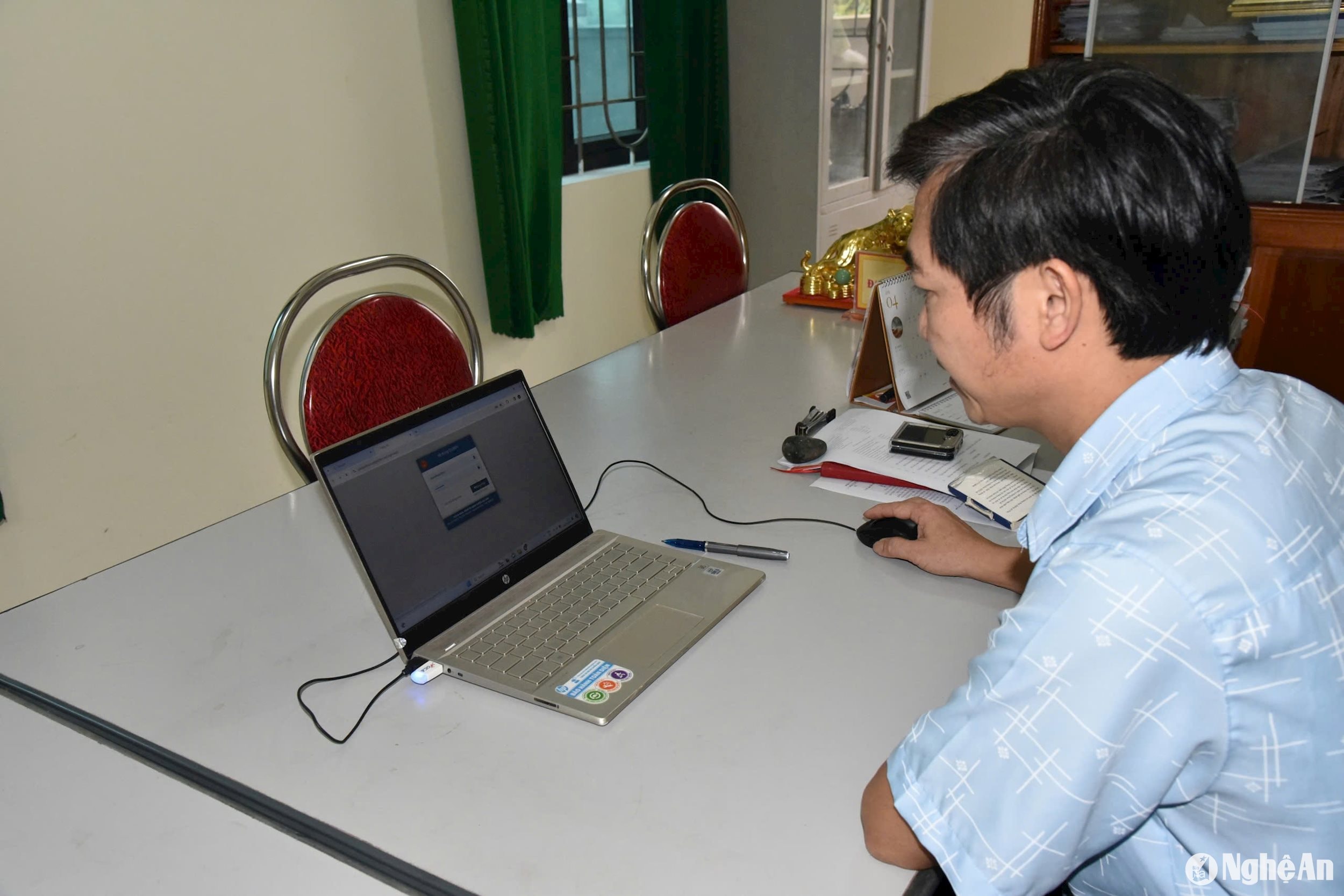
Speaking more about the positive changes thanks to the application of information technology in the highlands, Mr. Lu Quang Hung - Head of the District Party Committee's Propaganda Department, Director of the Ky Son District Political Center said that the application of information technology in the highlands has been particularly effective, something that was previously thought impossible due to the terrain and climate of remote areas. Building a digital government, operating online through online discussion groups, through social networks, through the VNPT IOffice document system has helped shorten the distance of space and time in bringing the Party's directives into life. As for propaganda work, for many years now, most of the press conferences have been conducted online. Cadres in remote villages, some communes and hamlets 70km away from Muong Xen town by mountain and forest road, now only need to be in the locality to attend meetings with district leaders" - Mr. Lu Quang Hung affirmed.
Building a digital government and operating online through online discussion groups, social networks, and the VNPT IOffice document system has helped shorten the distance of space and time in bringing the Party's directives into life.

In addition to changes in leadership and management, digital technology has also, for the first time, helped the Mong, Kho Mu, and Thai ethnic groups in Ky Son "sit at home and do paperwork such as registering births, marriages, and paying school fees for their children without having to walk dozens of kilometers to the commune People's Committee, go to school, or ride a motorbike for several hours to the district like before" - said Ms. Vu Y Xo in Huoi Le village, Huoi Tu commune. Ms. Vu Thi Huyen - President of the Women's Union of Ky Son district said that information technology combined with smartphones has changed the thinking of women in remote areas. Thanks to digital technology, women's unions have gathered a large number of members, encouraging women to participate in union work effectively. Especially since the District Women's Union deployed the "Application of information technology and digital transformation in union activities" phase 2023-2027. Up to now, 100% of grassroots Women's Unions have computers connected to the Internet, 100% of units have opened Facebook and Zalo accounts to carry out the Union's tasks. "Since applying digital technology, all information about meeting invitations, implementation of work contents, review of regimes and policies, visits and encouragements are carried out through social networking groups, including propaganda and mobilization work. Thanks to social networks and information technology, all implementation contents are "directly delivered" to each member, even if they are on the fields or even visiting relatives in Laos," Ms. Vu Thi Huyen confided.
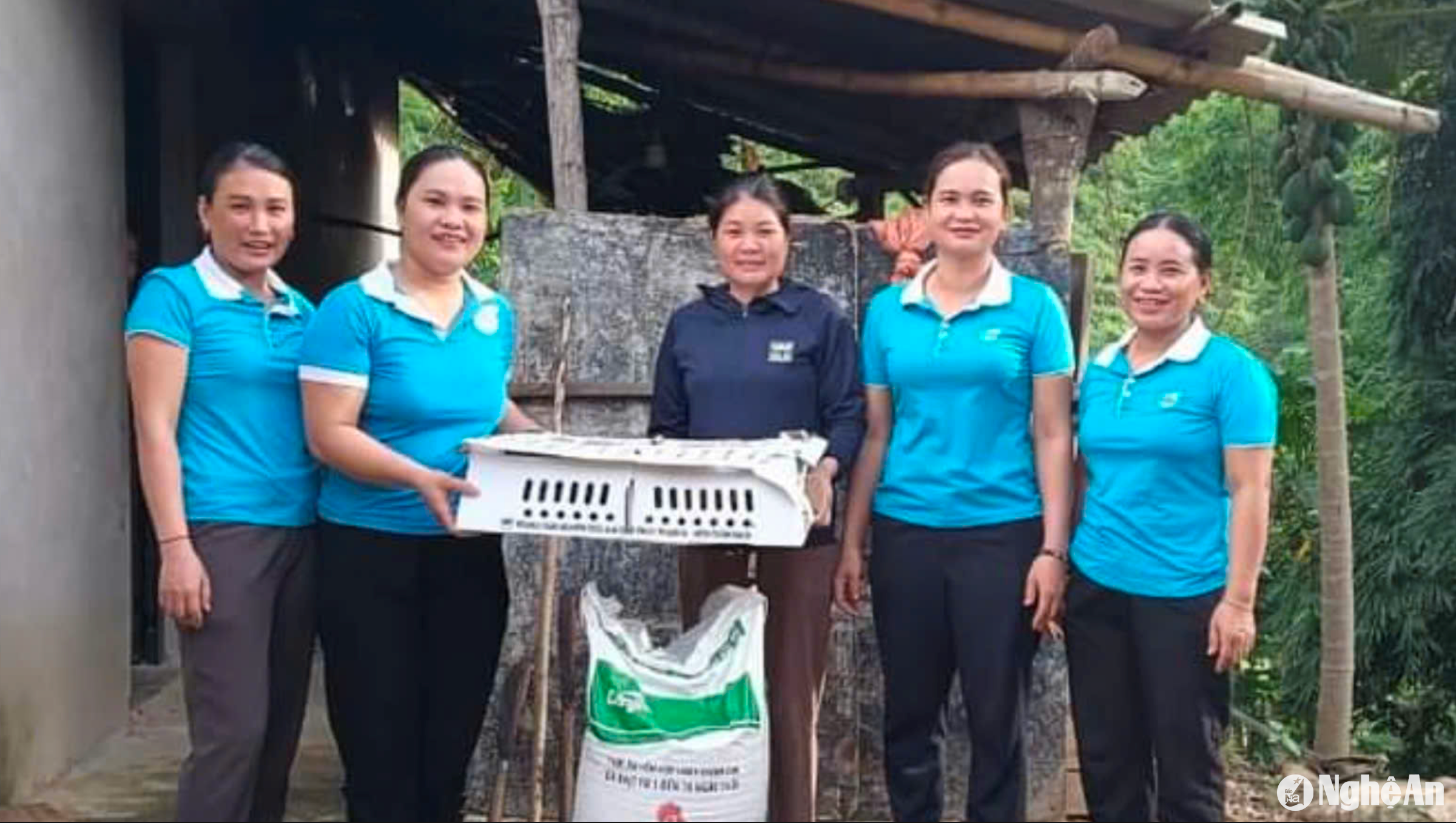
Speaking more about this, Mr. Tho Ba Re - Vice Chairman of the People's Committee of Ky Son district said that by June 2024, implementing the Project on Developing data applications on population, identification and electronic authentication to serve national digital transformation in the period of 2022 - 2025, Ky Son district has performed 100% of administrative procedures through the online public service system such as: Registering permanent and temporary residence; Registering and issuing license plates for motorbikes and scooters; Registering birth certificates, registering marriages, paying tuition fees, issuing health insurance cards for children under 6 years old; registering changes in land use rights, ownership of assets attached to land...
Not only in Ky Son, currently according to Mr. Vo Trong Phu - Deputy Director of the Department of Information and Communications, most mountainous districts have implemented the province's digital transformation plan quite synchronously, prioritizing investment in installing electronic document systems and online meetings to 100% of communes. Among them, many localities implemented early from 2018 - 2020 and created positive changes in administrative reform, leadership and management such as Tuong Duong, Que Phong, Anh Son, ... and later remote and difficult districts such as Ky Son have also completed connecting the online meeting system to 100% of communes.
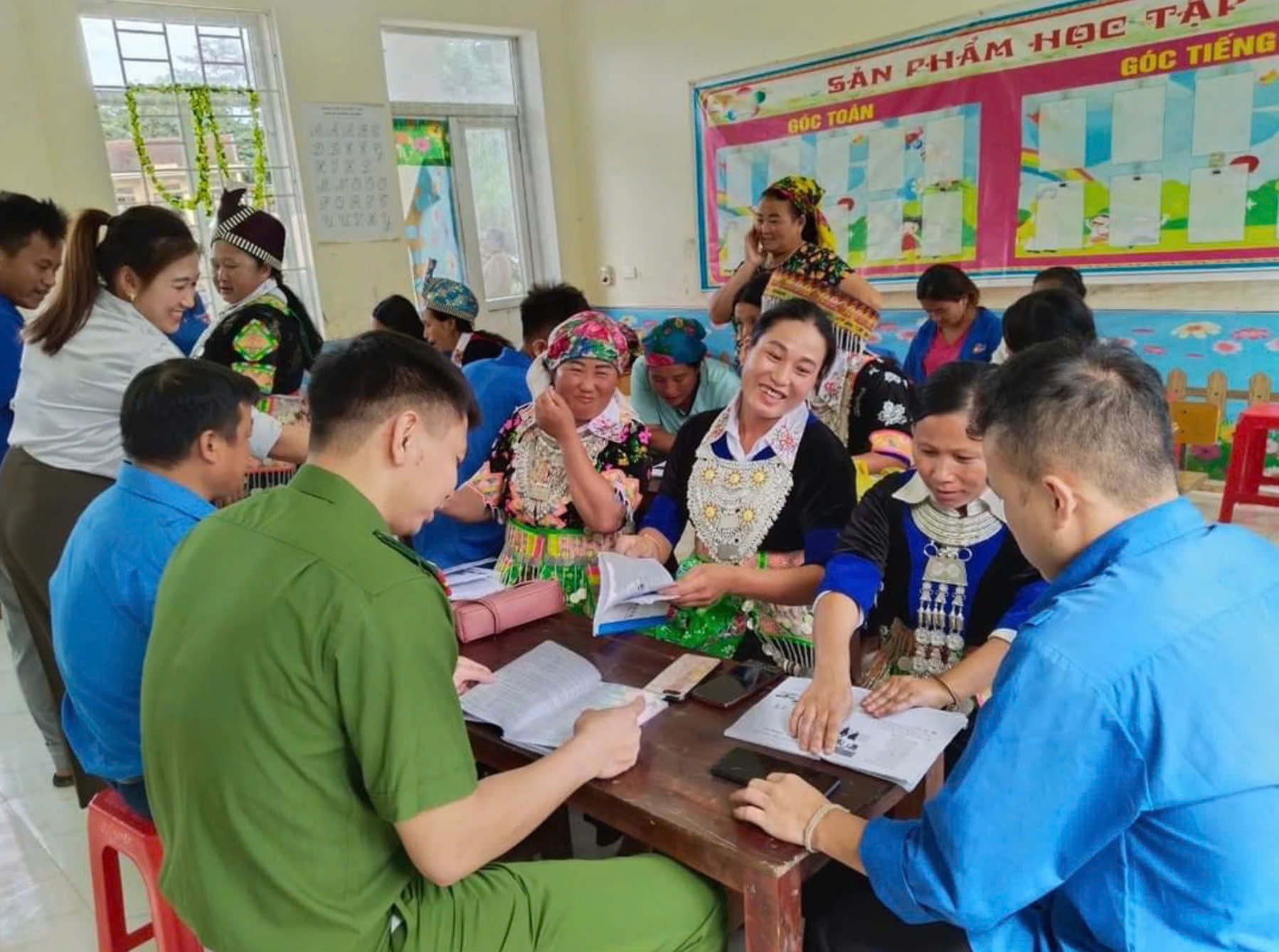
Mr. Vo Trong Phu added that recently, the Ministry of Information and Communications has coordinated with a number of organizations and enterprises to support the promotion of pilot digital transformation in a number of villages and communes before expanding. In the context of smart urban development being gradually implemented in localities, with the goal of narrowing the digital gap between urban and rural areas, between urban and mountainous areas, helping commune authorities to increase the application of information technology more effectively, at the same time to manage and serve people, helping people improve their digital skills to promote products and cultural features typical of their locality.



